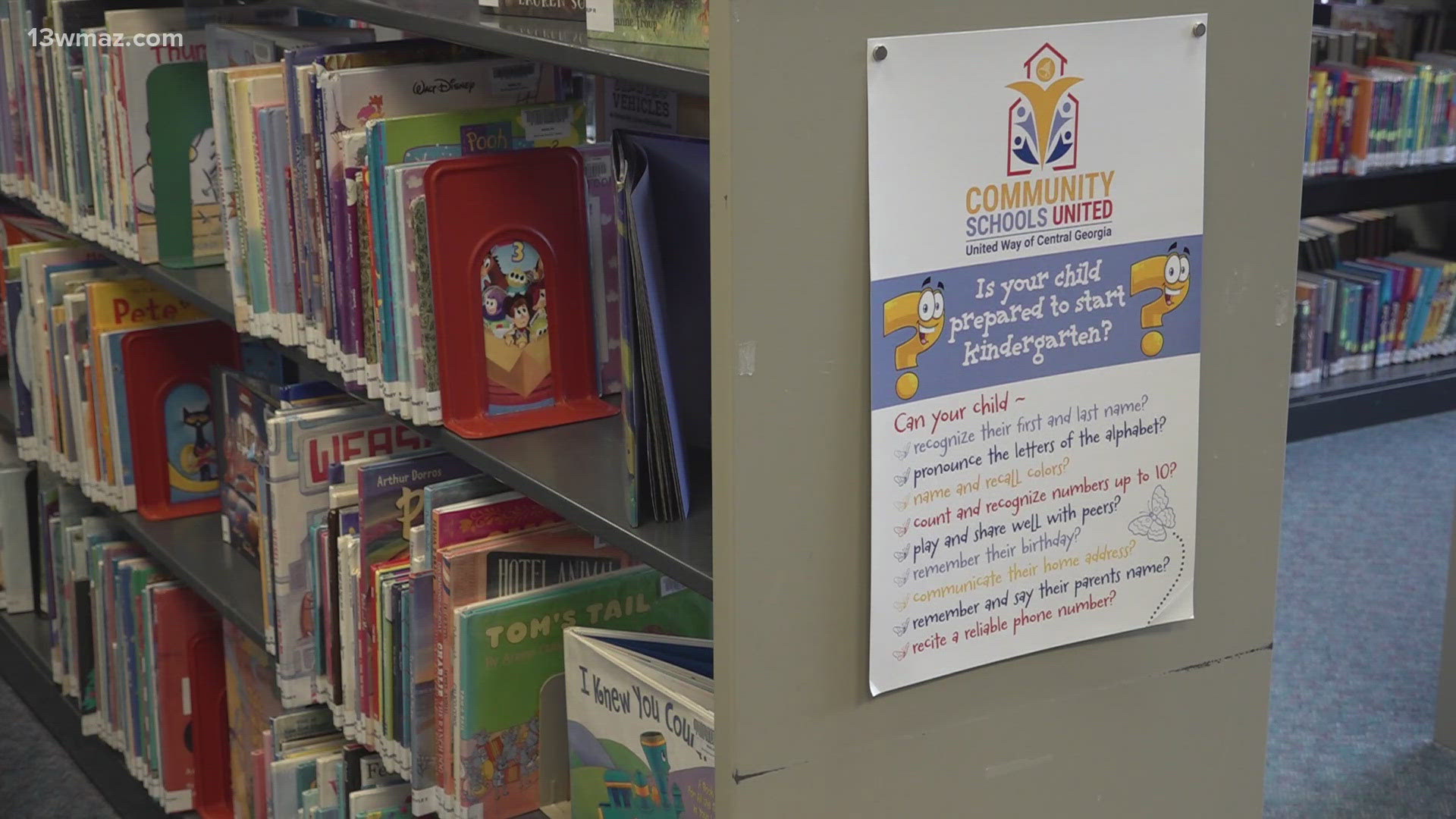MACON, Ga. — Juaquin Quijano makes memories with his two kids at the library.
"I used to like to come to the library with my mom, so you get to pass that on to the next generation and they love it just as much," he said.
For them, reading is a routine.
"We read every night,” Quijano said. “We come here, we pick out different books, whatever looks cool, we just begin to work on it. We start with the letters, and we go to bigger words like 'the,' 'cat,' 'bat,' 'hat'."
According to the Chief Operating Officer of Read United Way of Central Georgia Carl Tims, repetition is the best strategy.
The non-profit organization tutors students in 24 elementary schools across six counties. He said getting students the help they need early in life is crucial.
"If students can't read on grade level by the third grade, that is one of the highest predictors of whether or not they will graduate high school and be a productive citizen in society," Tims said.
But reading is about much more than future test scores.
"As literacy rates improve, communities improve, families improve," he said.
Tutors from Read United Way of Central Georgia are paired with students at the beginning of the year and work with the same ones throughout the whole year. Tims said typically reading scores increase approximately 10% each year through this method.
Along with tutoring, library time can help close gaps created during the pandemic. Quijano is using the library as a weapon against the biggest threat to his kids’ reading progress.
“I try to lessen the tablets and stuff,” he said. “I know she’s on the computer now, but at home, I limit that time. More book time.”
Another way to help your young reader catch up to their grade level is to have them participate in a summer reading program.

